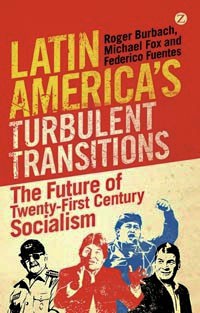latin america
Understanding Venezuela's election result: 'This time it was up to us to do it alone, and we won'

Election day, April 14, 2013.
By Tamara Pearson, Merida
Eyewitness Venezuela: Maduro wins close victory; Right wing reacts violently

By Ryan Mallett-Outtrim, Merida
April 16, 2013 -- Green Left Weekly -- The room erupted into cheers when the election result was announced. For hours, the city of Merida's most ardent supporters of socialist presidential candidate Nicolas Maduro had gathered in the local offices of the United Socialist Party of Venezuela (PSUV). However, after a few moments, the closeness of the numbers sank in.
At the time of writing, the National Electoral Council (CNE) had announced that with 99% of votes counted, the PSUV's Maduro won with 50.6%. His closest rival, Henrique Capriles, received 49.1%; giving Maduro a slim 1.5% victory.
In the last presidential elections, Maduro's predecessor Hugo Chavez defeated Capriles – the candidate of the US-backed right wing hostile to the Chavez-led Boliviaran revolution -- by just over 10%,. Many supporters of the revolution were expecting a similar result.
Last month, a joint Barclays/Datanalisis report gave Maduro a 14.4% lead, while pollster Hinterlaces predicted his victory would be 18%.
Mexico: Can worker-owners make a big factory run?

Two workers of the 1000-member TRADOC cooperative. The hiring of women in the plant was one of the many gains of worker ownership. Photo by Bob Briggs.
By Jane Slaughter
April 3, 2013 -- Labor Notes -- A tyre is not just a piece of rubber with a hole in it. I learned this when I visited the workers’ cooperative that makes Cooper tyres in El Salto, Mexico. A tyre is a sophisticated product that comes about through a chain of chemical processes, lots of machine pounding, and still the intervention of human hands.
A fervent inspection worker pointed out that every single tyre is tested under road-like conditions, “If not, it could kill people”, he noted. And, he added practically, “keeping the tyres safe saves our jobs”.
Venezuela: Nicolas Maduro, driving the revolution forward

Nicolas Maduro drove a bus to the National Electoral Council to register his candidacy for president.
By Luis Hernández Navarro, translated by Ewan Robertson for Venezuelanalysis.com
March 29, 2013 -- La Jornada -- Nicolas Maduro is a robust, burly man, 1.9 metres tall with a thick black moustache. He drove a metro bus in Caracas for seven years, was foreign minister for six more and is now interim president and candidate for the country’s top office. He is part of the a generation of Latin American leaders like metal worker Lula da Silva and coco-leaf unionist Evo Morales, who entered politics from the trenches of opposition social struggles [translator: in opposition to the neoliberal administrations that governed Latin America before the continent’s "pink tide", which began in the late 1990s].
Venezuela's April 14 presidential election campaign: start of a new era

"We are all Chavez"

March 15, 2013 -- Irish Left Review -- The following questions [in bold] and answers took place after a talk SYRIZA leader Alexis Tsipras gave to SYRIZA’s London branch in Friend’s House in Euston on March 15. The speech itself can be found here. Some of the questions have been condensed to remove lengthy preambles and/or tangents but they remain an accurate reflection of the query posed by the audience member.
Could you give us a few reflections on what we can learn from the left in Latin America and particularly the legacy of Hugo Chávez in Venezuela?
Exclusive excerpt: 'One Day in December: Celia Sánchez and the Cuban Revolution'

The following is an excerpt from Nancy Stout'
Luis Bilbao: Hugo Chavez, internationalism and revolution

By Luis Bilbao

March 6, 2013 -- Links International Journal of Socialist Renewal -- Venezuela's revolutionary leader Hugo Chavez has died. The Venezuelan people will face the enormous challenge of continuing their socialist revolution without unifying and mobilising figure of Chavez, who has been at the forefront of deepening and extending its radical course.
Green Left Weekly's Ryan Mallett-Outtrim, reported from Venezuela:
Venezuelan media today announced that Venezuelan President Hugo Chavez has died.
At approximately 5.30pm local time on March 5, Vice-President Nicolas Maduro addressed the nation, stating that after nearly three months of treatment in Cuba and Venezuela, Chavez passed away in the Dr. Carlos Arvelo military hospital in Caracas.
“Those who die for life, can’t be called dead”, he stated, after announcing that the president has lost his two year battle with cancer.
